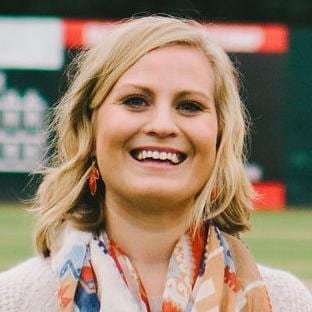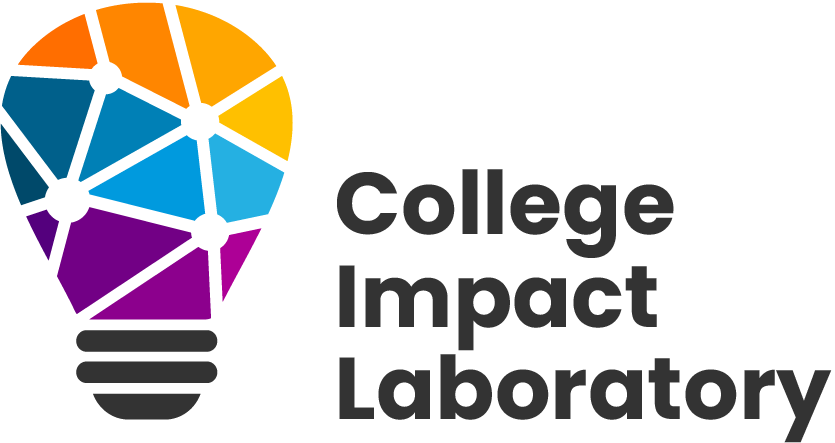Extending the reach of college impact researchers and administrators in and beyond the field of higher education.
Researching
How College Affects Students
College Impact Laboratory (CoIL) consists of higher educator researchers interested in college and its influence on students.
Physically located at The Ohio State University, the lab serves as a convening space for educators to learn about college impact as a research domain, with members feeling empowered to use empirical work to articulate arguments, voice opinions, and innovate toward building college improvement strategies.
It is our hope that CoIL sustains a productive dialogue – extending the reach of the empirical good work done by college impact researchers and administrators in and beyond the field of higher education.
Meet the Team
Matthew J. Mayhew, Ph.D.
Matthew J. Mayhew (he/his) is the William Ray and Marie Adamson Flesher Professor of Educational Administration with a focus on Higher Education and Student Affairs at The Ohio State University. He has focused his research on examining the relationship between college and its influence on student learning and democratic outcomes. To support the study of college and its impact on student development and learning, he has been awarded more than $25 million in funding from sources including but not limited to the United States Department of Education; the National Science Foundation; and the Templeton Religious Trust. He has been on the editorial boards of the Journal of Higher Education, Research in Higher Education, and the Journal of College Student Development and was named recently as a 2025 American Educational Research Association (AERA) Fellow. He received his B.A. from Wheaton College, Illinois; his Master’s degree from Brandeis University; and his Ph.D. from the University of Michigan.
-

Emily Creamer, Ph.D.
Research Director
Emily (she/her) serves as the Research Director. With over 18 years of experience working in higher education, she oversees the various CoIL grants and supervises the growing research team members. Prior to this position, she spent two years as a postdoctoral scholar in CoIL and nearly a year as a postdoctoral scholar at Case Western Reserve University. Her passions involve helping students with their mental health and balancing their academic, career, emotional, and social lives. Emily earned a Ph.D. in Higher Education Administration from Bowling Green State University. She also holds two master’s degrees from the University of Toledo: one in Clinical Mental Health Counseling and the second in Higher Education Administration. Her bachelor’s degree is from Mount Union College with majors in psychology and sociology.
-

Courtney DeRoche, Ph.D.
Postdoctoral Researcher
Courtney (she/her) serves as a Postdoctoral Researcher on the EDiCTS 2.0 project. Before joining CoIL, Courtney spent years teaching undergraduate courses, mentoring graduate student instructors, and training undergraduate researchers in quantitative and qualitative data collection and analysis. Her research examines race/racism in US higher education and the politics of knowledge production in global perspective. She is equally interested in the (post-) secondary educational experiences of immigrants and their children, especially in the US Midwest and South. Courtney is a three-time Buckeye, earning her Ph.D. (Sociology), M.A. (Sociology), and B.A. (International Studies and Spanish) at The Ohio State University.
-

Jossie Muñoz, M.A.
Lab Director
Jossie (she/her) serves as the Lab Director. In her role, she oversees organizational processes, and offers strategic support to advance the lab’s research initiatives. Jossie has over ten years of experience in education and has served as a college access leader, researcher, and administrator. Before joining CoIL, Jossie worked for a nonprofit to impact college and career readiness outcomes for students across California. She has earned her B.A. from Dickinson College and her M.A. in Higher Education and Student Affairs from New York University.
-

Laura S. Dahl, Ph.D.
CoIL Consultant
Laura (she/her) serves as a consultant using her technical skills to support with survey design, data cleanup, and analysis. Our lab also taps into her data visualization skills to communicate findings to a diverse audience. Laura is a Visiting Assistant Professor at NYU and previously worked as an assistant professor in the School of Education at North Dakota State University. Her research critically examines how collegiate environments can influence outcomes such as sense of belonging, self-authored worldview commitment, career outcome expectations, appreciative attitudes toward diverse others, and integrative learning. Laura earned a Ph.D. in Higher Education and Student Affairs from The Ohio State University. She has a master’s degree in College Student Affairs Administration from the University of Georgia and a bachelor’s degree in applied mathematics from the Georgia Institute of Technology.
-

Eric Mcchesney, Ph.D.
CoIL Consultant
Eric (he/his) serves as a consultant using his technical skills to support data cleanup and analysis for the Drive to Thrive project. In addition to diversity in STEM, his research expertise extends to interdisciplinarity in the sciences, including discovering the mechanisms by which effective interdisciplinary collaborations are formed, identifying contexts conducive to its flourishing, and developing educational experiences that accelerate its development. Eric earned a Ph.D. in Higher Education and Student Affairs from The Ohio State University. He has a master’s degree in Education from the University of Florida and a bachelor’s degree in English Language and Literature from Denison University.
-

Yun-Han Weng
Yun-Han (she/her) is a fourth year Ph.D. student in the Higher Education and Student Affairs program. She earned her M.S. in Educational Leadership and Policy Analysis at the University of Wisconsin -Madison. Yun-Han has worked in the MBA and Master’s Career Management office at the Wisconsin School of Business. She is a quantitative researcher. Her research interests include collegiate environments, interdisciplinary STEM education, and international students’ learning outcomes.
-

Kara Graham
Kara (she/her) is a third year Ph.D. student in the Higher Education and Student Affairs program. She earned her B.S. in Business Administration from Indiana University and spent her early career working in the market research industry. After pivoting to the nonprofit sector and working with transition-age foster youth for ten years, she shifted her efforts to academia. Kara recently completed her M.Ed. in Measurement, Evaluation, Statistics, and Assessment from the University of Illinois at Chicago. Her research focuses on the mechanisms that enhance postsecondary experiences and close outcome gaps for students from underserved backgrounds such as former foster youth.
-

Anisha Gill-Morris
Anisha (she/her) is a second year Ph.D. student in the Higher Education and Student Affairs Program. She earned her B.A. in Primary Education from the University of Reading and her M.S. in Educational Leadership from North Dakota State University. Anisha's time as an Athletic Academic Advisor at North Dakota State University ignited her passion for research into the collegiate experiences of female student-athletes of Color. Her research interests also extend to the topics of college alcohol consumption and the experiences of international students in the United States.
-

Hind Haddad
Hind (she/her) is a second year Ph.D. student in the Higher Education and Student Affairs (HESA) program at Ohio State University. A Palestinian refugee in Jordan and then an immigrant in the United States, she earned her M.Ed. in Curriculum and Instruction from Ashland University and her M.A. in Islamic Studies from the University of Jordan. Hind has worked in the K-12 Columbus School district for seven years and has dedicated herself to fostering inclusive learning environments. Her research focuses on the experiences of Muslim students and Arab females in higher education, exploring barriers and developing strategies to enhance support for these students. Hind is also interested in promoting the college experiences of underrepresented students and immigrants, investigating how college impacts these students' experiences and outcomes.
-

Susannah Townsend, CoIL Intern
Susannah (she/her) is a fourth year Ph.D. student in the Higher Education and Student Affairs program. After earning a B.S. in Biology from Emory University, she then earned her MPH in Infectious Diseases and Vaccinology from UC Berkeley. She worked briefly in clinical trials data analysis before shifting to institutional research at the University of California system and then at Mount Carmel College of Nursing. Her primary research interest is understanding how institutions can better meet the needs of first-generation college students and ensure their first-year success.
-

Anyi Ma, CoIL Intern
Anyi (she/her) is a first year Ph.D. student in the Higher Education and Student Affairs program. She earned her M.S. in Education at Shanghai Jiao Tong University. After working in the college as a staff, she cultivates her research interest in the development and growth of college students. Anyi is also interested to learn how institutional policies, pedagogical practices, and campus environments collectively shape students' professional trajectories.
-

Bryan Pogel, CoIL Intern
Bryan (he/his) is a third-year undergraduate student in the College of Education in Human Ecology. He is pursuing a degree in 7-12 Integrated Social Studies Education, with a minor in History and a certificate in Educational Ethics and Social Justice. He is originally from Cleveland, OH, and joined CoIL as part of the Deans Undergraduate Research Initiative. His research interests include grade-level education, classroom environments, and how cultural experiences influence teaching.
Our Projects
CoIL currently houses the following major research projects.
BATTERI: Bridging Academic Training Through Experiential Research and Innovation
The BATTERI program at OSU is a multi- year grant from the National Science Foundation. This project uses mixed methods to evaluate the experiences and learning outcomes of students and professionals enrolled in a clean-tech battery program.
Drive to Thrive: Student Success in Career & Technical STEM Education
Funded by ECMC Foundation, Drive to Thrive is designed to enhance diverse student recruitment, retention, graduation, and entry in the automotive technical workforce.
EmPOWERment
The EmPOWERment Project is funded by a five-year multi-million dollar grant from the National Science Foundation. This project uses mixed methods to evaluate the experiences and learning outcomes of graduate students enrolled in a novel trans-disciplinary STEM program.
Interfaith, Spiritual, Religious, and Secular Campus Climate Index (INSPIRES)
The INSPIRES Campus Climate Index project is a collaboration between researchers at The Ohio State University and North Carolina State University, inspired by data gathered through the Interfaith Diversity Experiences and Attitudes Longitudinal Survey (IDEALS) The project is funded by the Arthur Vining Davis Foundation and Pew Charitable Trusts.
Including Faculty on Religious, Spiritual, & Secular Mattering (InFORM)
InFORM seeks to capture information on faculty religious, spiritual, and secular (RSS) identification patterns and examine how the expression of RSS beliefs of faculty working in American colleges and universities shape their teaching, research, and service. This project is funded by the Templeton Religion Trust.
Interfaith Research Clearinghouse
The Interfaith Research clearinghouse is intended to serve as a central location for empirical work examining how we can harness educational opportunities in college to enhance relationship-building and cooperation for students of very different religious, secular, and spiritual identities (RSSIs).








